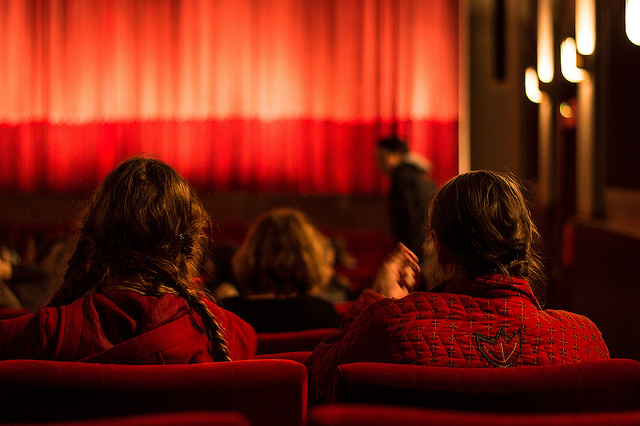
Photo: David Matos (CC BY-NC 2.0)
Study unravels audience experience of theatre
The value of theatre is in the inter-relationship between the performance, the spectators, and the associations which the experience triggers, according to new research.
Different aspects of a live performance, including the social context, the actors, and the extent to which a play provokes “thoughtfulness”, tend to be combined when audiences form judgements about theatre, and for many spectators, a performance being “entertaining” is quite compatible with it being “intellectually challenging”. This is one of the key findings from a research study led by the University of Warwick, funded by the Arts and Humanities Research Council (AHRC) as part of its ‘Cultural Value’ project, exploring how audience members value the experience of attending theatre.
The study, Critical Mass: Theatre Spectatorship and Value Attribution, has found that for many audience members, their evaluation of a performance is highly dependent on their social interactions related to the event, including discussing the experience with family and friends. It is also closely related to any personal connections they have with the ideas and feelings generated by the performance, and their long-term reflections on the experience as they process their thoughts and feelings about it over time. Participants in the study were found to value theatre as an opportunity to relieve the “pressures of self-awareness” by “offering access to another world – attractive because it is strange and explicitly not as a lesson in how to live”. They also value it as a “medium for exploring the meaning of behaviour” and “understanding of the lives of others”, as well as “to broaden the mind”, as a “prompt to action in their own lives”. Those who travel longer distances to attend a performance particularly value “the relationships between one performance experience and another” and express a “hunger for the sort of material which provides food for thought”. Education is a key determinant of how people value theatre, and for those who attend theatre from childhood, it becomes a form of “life-long learning where meaning accumulates over time”. These attenders also become more adept at selecting shows they will enjoy.
The research was carried out in collaboration with Royal Holloway University of London, Manchester Metropolitan University, and The British Theatre Consortium (BTC), a small think-tank of academics and artists. Three theatre partners – the Royal Shakespeare Company, the Young Vic, and the Drum Theatre in Plymouth – facilitated the research.
Join the Discussion
You must be logged in to post a comment.